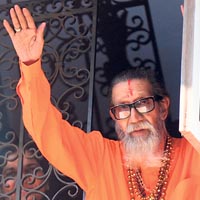 Here’s the last bit from Hayek’s Dec 11 1974 Nobel Prize lecture:
Here’s the last bit from Hayek’s Dec 11 1974 Nobel Prize lecture:
If man is not to do more harm than good in his efforts to improve the social order, he will have to learn that in this, as in all other fields where essential complexity of an organized kind prevails, he cannot acquire the full knowledge which would make mastery of the events possible. He will therefore have to use what knowledge he can achieve, not to shape the results as the craftsman shapes his handiwork, but rather to cultivate a growth by providing the appropriate environment, in the manner in which the gardener does this for his plants. There is danger in the exuberant feeling of ever growing power which the advance of the physical sciences has engendered and which tempts man to try, “dizzy with success”, to use a characteristic phrase of early communism, to subject not only our natural but also our human environment to the control of a human will. The recognition of the insuperable limits to his knowledge ought indeed to teach the student of society a lesson of humility which should guard him against becoming an accomplice in men’s fatal striving to control society – a striving which makes him not only a tyrant over his fellows, but which may well make him the destroyer of a civilization which no brain has designed but which has grown from the free efforts of millions of individuals.
One of the recurring themes of Hayek’s was the idea that social engineering is quite distinct from engineering of the natural world. With the appropriate technology and scientific knowledge it is possible to engineer machines and use them to control the world of objects, perhaps for the better, but human beings are not objects without volition. Humans have a will of their own and they pursue ends that are dictated by their desires and preferences which are neither fixed nor can be known by others. Social engineering always fails and makes a bad situation worse. Continue reading “Ask me Anything — the Hayek Edition”
 Gandhi matters enormously and he is rightly considered the “Father of the Nation.” That of course means that Gandhi is to a very large degree responsible for what India became (or failed to become) after India’s independence from the British raj.
Gandhi matters enormously and he is rightly considered the “Father of the Nation.” That of course means that Gandhi is to a very large degree responsible for what India became (or failed to become) after India’s independence from the British raj.
 Here’s the last bit from Hayek’s Dec 11
Here’s the last bit from Hayek’s Dec 11 